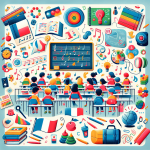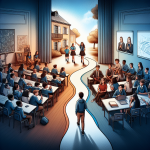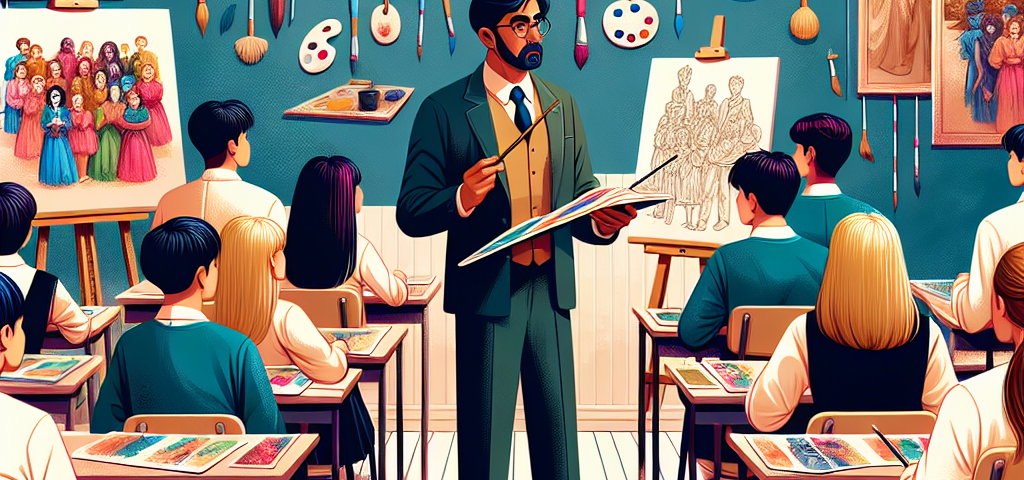
A Journey Through French: The Importance of Multisensory Learning in Primary Education
May 31, 2025
From Students to Leaders: The Impact of Student Councils in French Secondary Schools
May 31, 2025
Arts education is a crucial component of a well-rounded curriculum, particularly in French secondary schools. It encompasses a variety of disciplines, including visual arts, music, dance, and drama, and plays a significant role in fostering creativity, critical thinking, and cultural awareness among students. As education systems evolve, the significance of arts education remains paramount, not only for individual development but also for societal growth.
Enhancing Creativity and Innovation
One of the primary benefits of arts education is its ability to enhance creativity. In a world that increasingly values innovation, the skills cultivated through arts education—such as original thought, problem-solving, and the ability to approach challenges from new angles—are invaluable. Engaging in artistic activities encourages students to think outside the box, a trait that is essential in various fields, from science and technology to business and entrepreneurship.
Fostering Emotional Intelligence and Social Skills
Studying the arts allows students to express their emotions and thoughts. This is particularly important in a rapidly changing world where emotional intelligence plays a significant role in personal and professional success. Arts education promotes collaboration and communication skills, as many artistic projects require teamwork and shared vision. These social skills are essential for students as they navigate relationships in school and prepare for future workforce interactions.
Encouraging Cultural Awareness and Appreciation
France is a nation rich in artistic heritage, and arts education serves as a means to explore this cultural wealth. Through lessons in literature, history, music, and visual arts, students gain insights into their cultural identity and the contributions of diverse communities. This helps foster a sense of belonging and respect for other cultures. Understanding and appreciating different artistic expressions encourage a more inclusive mindset and can reduce stereotypes and prejudices.
Academic Performance and Engagement
Research consistently shows that students involved in arts education tend to perform better academically. Participation in the arts has been linked to improved grades, higher test scores, and increased attendance rates. This can be attributed to the cognitive benefits of arts education, which enhances skills such as focus, discipline, and perseverance. Furthermore, arts education can make learning more enjoyable, engaging students who might otherwise struggle in a traditional academic environment.
Career Opportunities and Lifelong Skills
The skills gained through arts education are transferable and applicable in numerous career paths. Professions in design, media, entertainment, and education value the creativity and innovative thinking fostered through the arts. Additionally, even for students who do not pursue careers in creative fields, the ability to communicate effectively, think critically, and collaborate remains advantageous in any profession.
Overcoming Challenges in Arts Education
Despite its importance, arts education in French secondary schools often faces challenges, including funding cuts and a focus on standardized testing in core subjects. Advocating for a balanced curriculum that includes a strong arts program is essential. Policymakers, educators, and communities must recognize the integral role of the arts and invest resources to ensure that students have access to quality arts education.
Conclusion
The benefits of arts education in French secondary schools are extensive and multifaceted. From enhancing creativity and emotional intelligence to fostering cultural awareness and improving academic performance, the arts play an essential role in shaping well-rounded individuals. As we navigate an increasingly complex world, it is imperative to advocate for robust arts education programs that empower the next generation to think creatively, embrace diversity, and engage meaningfully with their communities. Investing in the arts is, ultimately, an investment in a brighter future for all.

